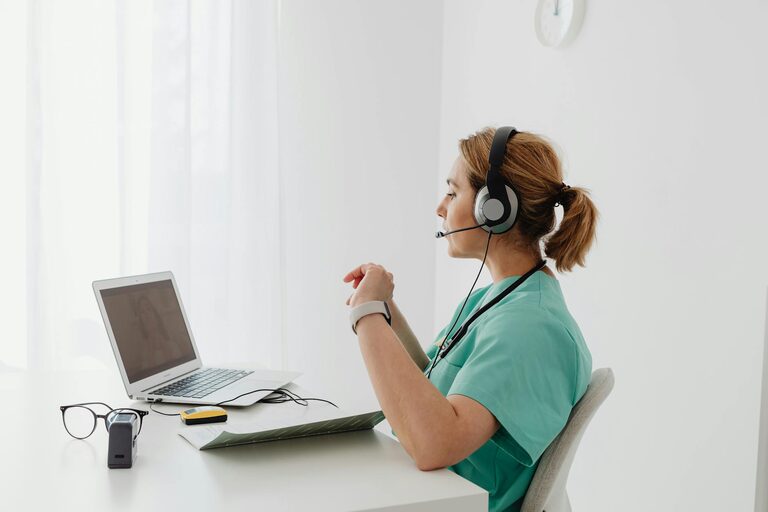
Spending hours in front of digital screens is now a part of daily life for many of us. Whether for work, school, or leisure, screen time has increased significantly, and with it, concerns about eye health. Prolonged exposure to screens can lead to discomfort, dryness, and even blurred vision, a condition often referred to as digital eye strain or computer vision syndrome.
Fortunately, there are practical steps you can take to protect your eyes and maintain comfort during screen use. This guide outlines strategies that are easy to implement and effective in reducing the strain screens put on your eyes.
Understanding Digital Eye Strain
Digital eye strain occurs from extended periods of focusing on screens such as computers, tablets, or smartphones. The symptoms may include:
– Eye fatigue or tiredness
– Dry or watery eyes
– Blurred or double vision
– Headaches
– Neck and shoulder pain
These symptoms arise because digital screens often cause us to blink less frequently, resulting in dryness and irritation. Also, glare and poor lighting can increase strain.
Setting Up Your Workspace for Eye Comfort
Creating an eye-friendly environment is the first step to reducing strain.
Position Your Screen Properly
– Keep your monitor about an arm’s length (20–28 inches) away.
– Position the screen slightly below eye level so you look down at it naturally.
– Avoid placing the screen directly in front of bright windows or lights to minimize glare.
Adjust Lighting and Screen Settings
– Use soft, ambient lighting instead of harsh overhead lights.
– Reduce or eliminate glare by using an anti-glare screen filter or adjusting blinds.
– Adjust the brightness of your screen to match the surrounding light — not too bright or dim.
– Increase text size and contrast for easier reading without straining.
Adopt Healthy Viewing Habits
Small habits go a long way toward eye health.
Follow the 20-20-20 Rule
Every 20 minutes, look at something 20 feet away for at least 20 seconds. This helps relax eye muscles and reduces fatigue.
Blink More Often
Conscious blinking moistens your eyes. Try to blink fully and regularly to avoid dryness.
Take Regular Breaks
Step away from your screen every hour for at least 5-10 minutes. Walk around or stretch; this benefits your eyes and overall well-being.
Use Protective Eyewear and Screen Filters
Special glasses and filters can be helpful.
– Consider blue light blocking glasses if you spend a lot of time in front of screens, especially in the evening.
– Use anti-glare screen protectors to reduce reflections.
– Consult an eye care professional for personalized recommendations.
Maintain Overall Eye Health
Healthy lifestyles support good vision.
Stay Hydrated
Drink plenty of water to keep your eyes hydrated.
Maintain a Balanced Diet
Foods rich in vitamins A, C, and E, as well as omega-3 fatty acids, contribute to eye health. Include leafy greens, carrots, nuts, and fish in your diet.
Schedule Regular Eye Exams
Routine checkups can detect early signs of vision issues and provide tailored advice for eye protection.
Additional Tips for Specific Devices
Smartphones and Tablets
– Use “night mode” or reduce blue light in the device settings particularly when using devices in the evening.
– Hold devices at eye level rather than looking down to reduce neck strain.
Laptops and Desktops
– Use an external keyboard and mouse so you can adjust your device position comfortably.
– Customize display settings to reduce flicker and optimize refresh rate if possible.
Conclusion
Protecting your eyes during screen time doesn’t require drastic changes. By adjusting your workstation, practicing mindful viewing habits, and maintaining healthy lifestyle choices, you can significantly reduce eye strain and preserve your vision. Remember that small adjustments add up to long-term benefits for your eye comfort and health.
By following these tips, you can enjoy your digital time more comfortably and with less fatigue. Prioritize your eye health today—your eyes will thank you!
